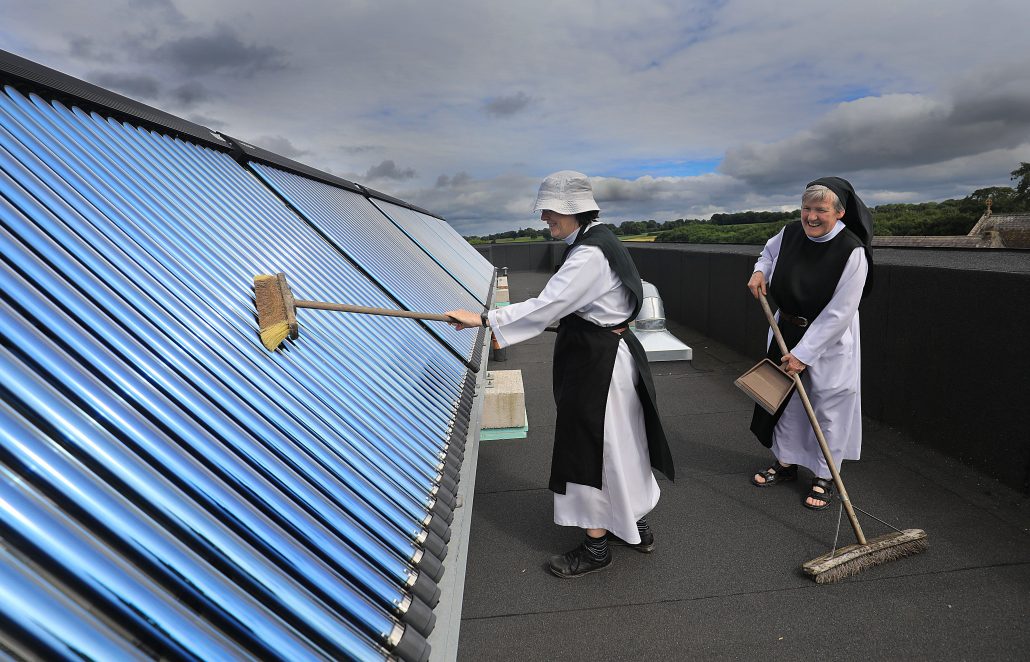Cistercians have always been ‘lovers of the place’. In this time of global environmental deterioration, we are more aware than ever as a community of the needs of our environment and of the importance of taking environmentally-friendly initiatives in our monastic way of life.
Renewable Heating Fuel
In 2014 we began to grow Miscanthus, a type of elephant grass, Asian in origin, in a 20 acre field at the Abbey intending to switch from oil to a renewable heating fuel for our monastery. The results exceeded expectations. Both our land and our climate proved to be particularly suited to growing Miscanthus as evidenced by our annual harvest. A perennial crop, it has an amazing regenerative capacity, growing two metres each year. We invested in a boiler from Poland which is especially suited to burning Miscanthus and meets EU emissions requirements. The boiler, which has a capacity of 55,000 litres to heat water, has been specially chosen to heat both the Abbey and our new guesthouse and hospitality centre facility. Its green and its very effective!

Solar Panels
In the course of our building project, every effort has been made by our design team to incorporate energy efficient ways to manage services in our new and renovated monastery buildings. A number of solar panels located on the roof of our new accommodation wing make a contribution to the heating of our water in the monastery through converted solar energy.
Recycling Domestic Waste
The community have been increasing efforts over a number of years to separate and recycle waste material in an effort to minimise as much as possible our contribution to landfill waste and to reduce our carbon emissions and. Our Eucharist Bread-making facility also sends all its production waste to a local compostable food-recycling unit in order to avoid landfill disposal or risk contaminating river-water.
Integrated Wetlands
This is a green method of ensuring that the effluent from our sewage system gets properly purified: a two pod reed-bed system in a low-lying field on our property purifies sewage waste with the added advantage of the growth of a whole new eco-system. This is as a result of introducing an additional range of plants in the reed-beds to encourage bio-diversity.
A Prayer for our Earth
All-powerful God, you are present in the whole universe
and in the smallest of your creatures.
You embrace with your tenderness all that exists.
Pour out upon us the power of your love,
that we may protect life and beauty.
Fill us with peace, that we may live
as brothers and sisters, harming no-one.
O God of the poor,
help us to rescue the abandoned and forgotten of this earth,
so precious in your eyes.
Bring healing to our lives,
that we may protect the world and not prey on it,
that we may sow beauty, not pollution and destruction.
Touch the hearts
of those who look only for gain
at the expense of the poor and the earth.
Teach us to discover the worth of each thing,
to be filled with awe and contemplation,
to recognise that we are profoundly united
with every creature
as we journey towards your infinite light.
We thank you for being with us each day.
Encourage us, we pray, in our stuggle
for justice, love and peace.
Laudato Si, On Care for our Common Home, Encyclical letter of Pope Francis (2015)
